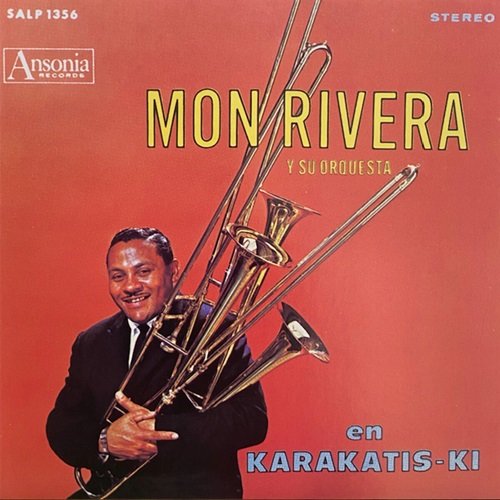Marcus Shelby Orchestra - Transitions (2019)
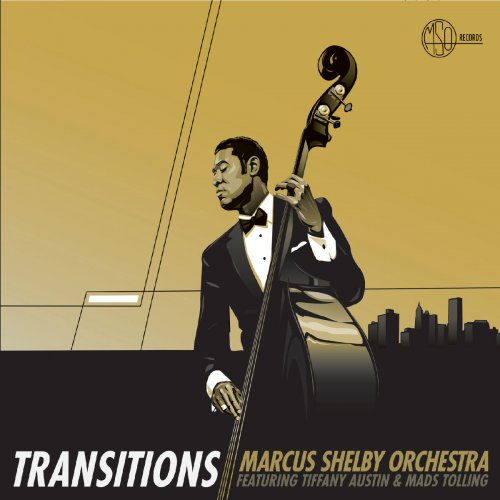
Artist: Marcus Shelby Orchestra
Title: Transitions
Year Of Release: 2019
Label: Marcus Shelby Orchestra
Genre: Jazz
Quality: FLAC (tracks)
Total Time: 52:15 min
Total Size: 334 MB
WebSite: Album Preview
Tracklist:Title: Transitions
Year Of Release: 2019
Label: Marcus Shelby Orchestra
Genre: Jazz
Quality: FLAC (tracks)
Total Time: 52:15 min
Total Size: 334 MB
WebSite: Album Preview
01. Remember Rockefeller at Attica
02. On a Turquoise Cloud
03. Begin the Beguine
04. Lullaby of Birdland
05. In My Solitude
06. It's All Right with Me
07. Transition I (Pittsburg)
08. Transition II (New York)
09. Barnstormin' (Chicago)
10. Black Ball Swing (Kansas City)
11. Mood Indigo
Bassist, composer, and bandleader Marcus Shelby brings together three of his greatest passions—African-American history, baseball, and big-band jazz—on Transitions, the latest work by his 15-piece Marcus Shelby Orchestra, set for a June 7 release on his own MSO Records. While the album offers Shelby’s lush arrangements of classic tunes by Charles Mingus, Duke Ellington, and Cole Porter, its centerpiece “Black Ball: The Negro Leagues and the Blues” is an original four-part suite inspired by the history of Negro League Baseball. It also features superb work by two special guests, violinist Mads Tolling and acclaimed vocalist Tiffany Austin.
Shelby’s work to date has established his penchant for deep musical dives into African-American history and culture. Transitions is not a full-length opus like his 2007 oratorio Harriet Tubman or 2011’s Soul of the Movement: Meditations on Dr. Martin Luther King Jr., but it is unquestionably on the same ambitious path as those two works. It’s also a natural choice of subject matter for San Francisco-based Shelby, a self-described baseball aficionado who (when he’s not on the bandstand) can often be found cheering on his beloved San Francisco Giants.
“I did a whole theatrical project that premiered last September at the Yerba Buena Gardens Festival,” he explains. “It re-created the environment of a Negro League baseball park. This suite was inspired by the research I did for that project. But it’s more about these four cities—Pittsburgh, New York, Chicago, Kansas City—that were very central to the Negro Leagues.”
Those were also central to the development of jazz, and Shelby’s pieces reflect the parts they played in that development. The suite’s opening “Transition 1 (Pittsburgh),” a nod to two powerhouse teams (the Pittsburgh Crawfords and the Homestead Grays), also reflects the city’s blues tradition and the hard swing generated by native-son drummers from Art Blakey to Jeff “Tain” Watts. Its finale, “Black Ball Swing (Kansas City),” celebrates the Kansas City Monarchs—“the best known, most respected team of all time in the Negro Leagues,” Shelby says—with both the riff-driven style of the Count Basie Orchestra and the supercharged bebop of Charlie Parker, both Kansas City exports.
Transitions also includes one composition each by Charles Mingus and George Shearing, along with two by Cole Porter and three by the grand master of big band writing, Duke Ellington. It’s “an album that mirrors a live performance,” he says. “It’s like seeing one of our concerts. It felt good to break away from doing programmatic music to playing some straight-up blues and swing and standards.” The Duke’s gorgeous but rarely played “On a Turquoise Cloud” is a feature for guest violinist Tolling, while his “Mood Indigo” and “Solitude,” along with Shearing’s “Lullaby of Birdland” and the two Porter tunes, are vehicles for Tiffany Austin’s vocals.
Marcus Shelby was born February 2, 1966 in Anchorage, Alaska, moving to Sacramento, California at the age of five. He played the bass as a teenager, but his real passion was for baseball and basketball, earning a college scholarship in the latter. At 22, however, a concert by the Wynton Marsalis Quartet reignited his love of music, and he returned to school at California Institute of the Arts (CalArts) in Valencia, where he studied with Charlie Haden and James Newton.
First gaining attention in Los Angeles as a cofounder (with drummer Willie Jones III) of the hard-bop band Black/Note in the early 1990s, Shelby relocated to San Francisco in 1996. He quickly established himself as an essential creative force on the Bay Area arts scene, leading both the Marcus Shelby Trio and the Marcus Shelby Jazz Orchestra and earning increasingly prestigious commissions from dance companies, theatrical productions, and presenters.
Shelby opened a new chapter with the release of 2006’s Port Chicago (Noir), a major orchestral work inspired by the World War II incident that saw 50 young black seamen convicted in the largest mutiny trial in U.S. naval history. Since then he’s focused his creative energy on a series of meticulously researched, hard-swinging works exploring African American history, like 2007’s Harriet Tubman (Noir) and 2011’s Soul of the Movement: Meditations on Dr. Martin Luther King Jr. (Porto Franco).
Shelby’s work to date has established his penchant for deep musical dives into African-American history and culture. Transitions is not a full-length opus like his 2007 oratorio Harriet Tubman or 2011’s Soul of the Movement: Meditations on Dr. Martin Luther King Jr., but it is unquestionably on the same ambitious path as those two works. It’s also a natural choice of subject matter for San Francisco-based Shelby, a self-described baseball aficionado who (when he’s not on the bandstand) can often be found cheering on his beloved San Francisco Giants.
“I did a whole theatrical project that premiered last September at the Yerba Buena Gardens Festival,” he explains. “It re-created the environment of a Negro League baseball park. This suite was inspired by the research I did for that project. But it’s more about these four cities—Pittsburgh, New York, Chicago, Kansas City—that were very central to the Negro Leagues.”
Those were also central to the development of jazz, and Shelby’s pieces reflect the parts they played in that development. The suite’s opening “Transition 1 (Pittsburgh),” a nod to two powerhouse teams (the Pittsburgh Crawfords and the Homestead Grays), also reflects the city’s blues tradition and the hard swing generated by native-son drummers from Art Blakey to Jeff “Tain” Watts. Its finale, “Black Ball Swing (Kansas City),” celebrates the Kansas City Monarchs—“the best known, most respected team of all time in the Negro Leagues,” Shelby says—with both the riff-driven style of the Count Basie Orchestra and the supercharged bebop of Charlie Parker, both Kansas City exports.
Transitions also includes one composition each by Charles Mingus and George Shearing, along with two by Cole Porter and three by the grand master of big band writing, Duke Ellington. It’s “an album that mirrors a live performance,” he says. “It’s like seeing one of our concerts. It felt good to break away from doing programmatic music to playing some straight-up blues and swing and standards.” The Duke’s gorgeous but rarely played “On a Turquoise Cloud” is a feature for guest violinist Tolling, while his “Mood Indigo” and “Solitude,” along with Shearing’s “Lullaby of Birdland” and the two Porter tunes, are vehicles for Tiffany Austin’s vocals.
Marcus Shelby was born February 2, 1966 in Anchorage, Alaska, moving to Sacramento, California at the age of five. He played the bass as a teenager, but his real passion was for baseball and basketball, earning a college scholarship in the latter. At 22, however, a concert by the Wynton Marsalis Quartet reignited his love of music, and he returned to school at California Institute of the Arts (CalArts) in Valencia, where he studied with Charlie Haden and James Newton.
First gaining attention in Los Angeles as a cofounder (with drummer Willie Jones III) of the hard-bop band Black/Note in the early 1990s, Shelby relocated to San Francisco in 1996. He quickly established himself as an essential creative force on the Bay Area arts scene, leading both the Marcus Shelby Trio and the Marcus Shelby Jazz Orchestra and earning increasingly prestigious commissions from dance companies, theatrical productions, and presenters.
Shelby opened a new chapter with the release of 2006’s Port Chicago (Noir), a major orchestral work inspired by the World War II incident that saw 50 young black seamen convicted in the largest mutiny trial in U.S. naval history. Since then he’s focused his creative energy on a series of meticulously researched, hard-swinging works exploring African American history, like 2007’s Harriet Tubman (Noir) and 2011’s Soul of the Movement: Meditations on Dr. Martin Luther King Jr. (Porto Franco).
![Mammal Hands - Circadia (2026) [Hi-Res] Mammal Hands - Circadia (2026) [Hi-Res]](https://www.dibpic.com/uploads/posts/2026-02/1771945393_folder.jpg)
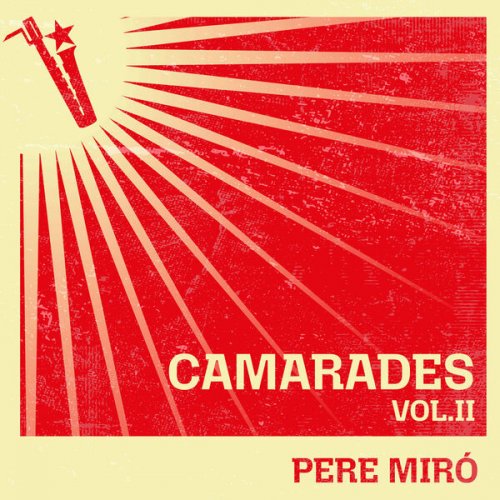
![Aaron Quinn - To Be Held (2026) [Hi-Res] Aaron Quinn - To Be Held (2026) [Hi-Res]](https://img.israbox.com/img/2026-02/20/zmwyd3pc4g0fv5hzoz5kht5h3.jpg)
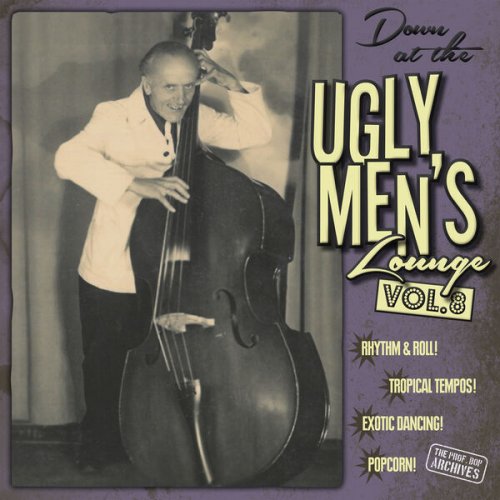
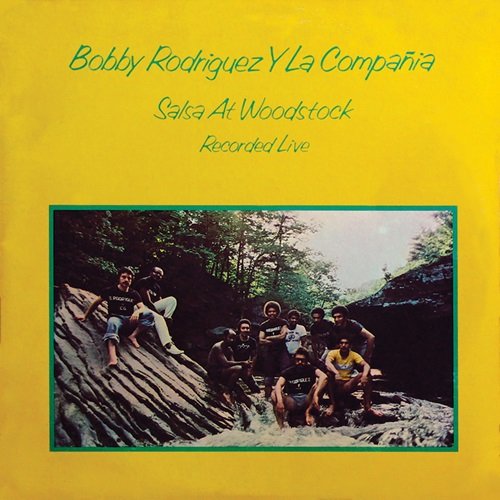
![Freysteinn - Thoughts (2026) [Hi-Res] Freysteinn - Thoughts (2026) [Hi-Res]](https://img.israbox.com/img/2026-02/20/v51kb7e32wkdjbts45lwsh18u.jpg)


